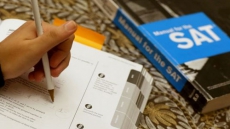Care to share your most embarrassing moment? Some wouldn’t think twice about spilling the shameful details; the private email they sent to their boss, the dramatic fall down a busy set of stairs, the lengthy piece of toilet paper stuck to their shoe.
For others though, the thought of bringing up such embarrassing experiences causes a downward gaze, pink cheeks and any attempt to avoid recalling such regretful details. Embarrassment is a self-conscious but public emotion. The emotional discomfort with oneself is caused when an act or condition which is most often deemed to be socially-unacceptable is exposed to or witnessed by others. It is an internal alert that the situation is outside certain normal social standards, causing concern to how one is viewed by others and oneself.
“Embarrassment is certainly within the range of normal human emotion,” explains Megan Sutherland, MSW, RCSW of Willow Tree Counselling. “Most of us definitely get embarrassed and some of us are more prone to it than others. This can be related to underlying temperament (i.e. biological, emotional disposition), personality and life experiences.”
Embarrassment isn’t always the result of a negative situation. Compliments on one’s appearance, recognition for a job well done, or celebration of milestone events can all
cause embarrassment despite the focus on a positive attribute or achievement. These situations may still bring about unwanted attention by the individual, and thus elicit the emotional response of being embarrassed rather than feeling confident or proud.
It might seem strange to consider any benefits to such an emotion, but without embarrassment, the acceptance of certain social behaviours may not have evolved. Being embarrassed is an acknowledgement that a regrettable behaviour has occurred; due to the resulting discomfort, the embarrassed individual tends to want to avoid similar situations and
works to alter or better their actions.
While it’s hard not to be embarrassed when we’re the subject of unwanted and potentially unflattering attention, how we react in embarrassing situations can affect one’s level of emotional discomfort. Some laugh, others sweat, many blush and lots fidget. These reactions are all normal and manifest in varying degrees. Because embarrassment is an emotional response, not everyone is prone to the same reaction. This makes certain situations embarrassing for some and not for others, while causing reactions varying from humour to fear.
If embarrassing situations seem to only make you more awkward and increase your level of embarrassment, Sutherland advises several ways to change how one reacts when faced with such discomfort. “Use encouraging, but realistic self-talk (being phoney-positive usually doesn’t help),” she says. “For example, ‘embarrassment isn’t a permanent condition,’ ‘I’ve gotten embarrassed in the past and survived’, ‘Mary was surprised that I was embarrassed last week when I brought it up with her.’”
“Some people benefit from using visualization – imagining blood/heat draining from one’s face out through one’s hands; visualizing cooling images.” Sutherland also suggests using distraction methods. “Touching a smooth stone in our pocket, fiddling with a bracelet, counting our breaths/doing long, slow breathing which also helps us physiologically.”

Admitting the experience was uncomfortable or embarrassing can lessen the pain of reliving the event. Dwelling on embarrassing situations and the mistakes that may have caused then can have unfortunate effects on self-esteem. Instead, being able to identify the areas for growth or improvement will turn an embarrassing story into a lesson learned.
“If embarrassment gets to the point that it’s interfering with our daily lives – as in social anxiety, for example, where we become preoccupied that we will do something embarrassing or humiliating and chronically avoid situations where we fear that this could occur – it’s important to seek help,” says Sutherland, adding that there are many online resources and therapists who work with social anxieties.
Those who act embarrassed in response to their own social wrongdoing are most apt to be liked; another reason to accept your emotions is to acknowledge your actions and move past any negative associations. “Some people find embarrassment quite endearing (although that’s not usually the case for the person who’s embarrassed!),” says Sutherland. “Embarrassment can be a sign of humility, providing one doesn’t take it too far.”
As is often the case, how we view a situation varies greatly from how it is viewed by those around us. So while you may think that all eyes were on you as you tripped into a crowded meeting room, chances are that it wasn’t as noticeable as you might have imagined. You may replay such transgressions over and over in your mind, magnifying your actions and increasing your level of embarrassment, but an outsider may not have noticed or thought your actions embarrassing at all. Keeping this in mind may not eliminate any embarrassing emotions, but it may help decrease your discomfort.
“It’s important to remember that embarrassment is a very human emotion,” says Sutherland. While you may wish away any social awkwardness and cringe at the thought of unwanted attention, responding emotionally to any situation is a healthy, appropriate, and often expected response.





